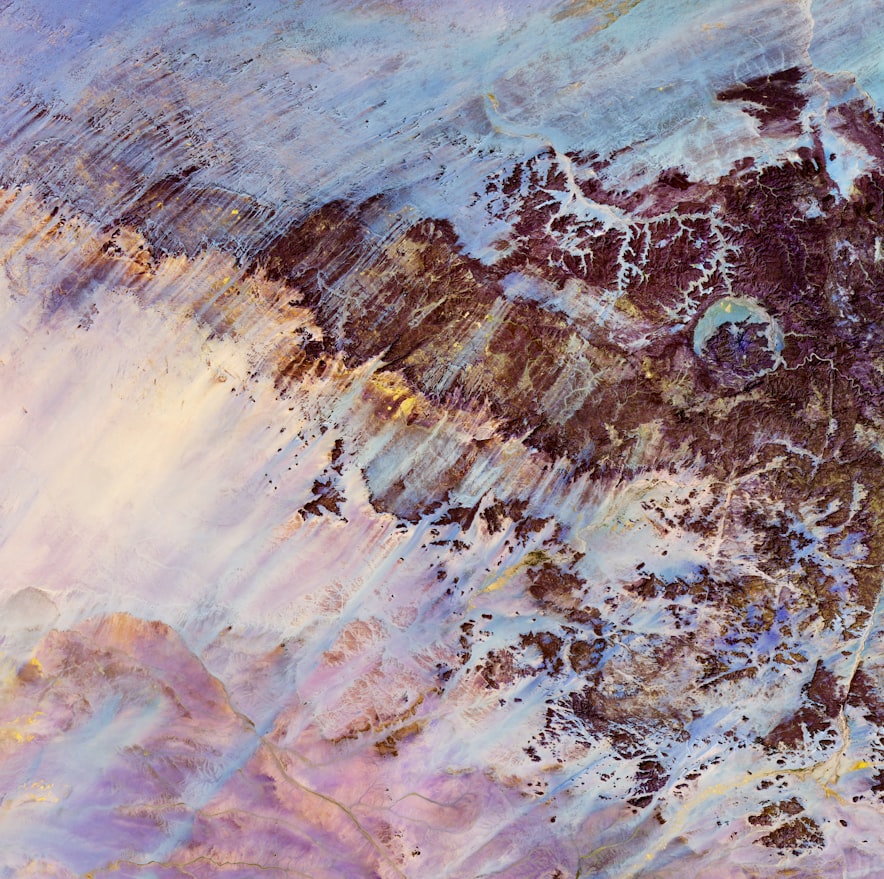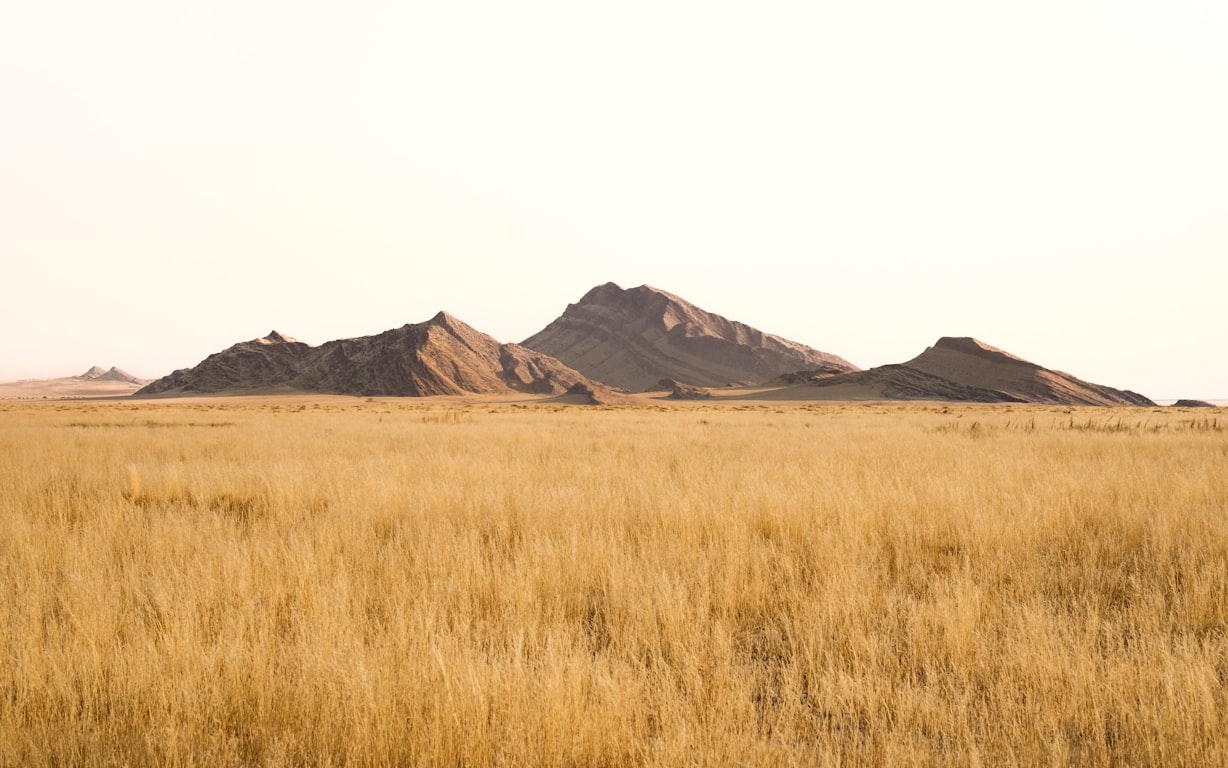Top Attractions
Chad offers a variety of unique attractions that highlight its dramatic landscapes and rich cultural heritage. One of the most iconic destinations is the Ennedi Plateau in the northeast, known for its stunning sandstone formations, prehistoric rock art, and natural arches like the Aloba Arch. Zakouma National Park is a prime wildlife destination, offering sightings of elephants, lions, and Kordofan giraffes, particularly during the dry season. Lake Chad, once one of Africa’s largest freshwater lakes, remains an important ecological and cultural region, with opportunities to see traditional fishing communities and birdlife. In the capital, N’Djamena, visitors can explore the National Museum and Grand Mosque, providing insight into the country’s diverse ethnic groups and history.
Local Dishes
Chadian cuisine is hearty and rooted in traditional African staples with regional variations. One common dish is boule, a thick porridge made from millet or sorghum, typically served with sauces made from vegetables, meats, or fish. Jarret de boeuf (braised beef shank) is popular in urban areas and often accompanied by fried plantains or rice. Fish dishes, particularly dried or smoked varieties from Lake Chad, are prevalent, with ingredients like tilapia and perch featuring in dishes such as la potée tchadienne (Chadian stew). Peanut sauce and okra are frequently used in meals, adding richness and texture.
Transportation Tips
Traveling in Chad can be challenging due to limited infrastructure and vast distances between regions. In cities like N’Djamena, taxis and motorcycle taxis are the primary means of getting around, though fares should be negotiated in advance. There are some domestic flights between major towns, but schedules can be inconsistent. For visiting remote areas, hiring a 4x4 vehicle with an experienced local driver is essential, particularly during the rainy season when roads can become impassable. Always carry spare fuel and provisions when driving outside urban centers.
Budget Travel Tips
Chad is not typically a budget destination, but travelers can save money by staying in local guesthouses or auberges instead of international hotels. Eating at street stalls or small local restaurants can significantly reduce food costs while offering a taste of authentic Chadian cuisine. Bargaining is common in markets and for transportation, so polite negotiation can lead to better prices. Traveling in groups may help reduce costs when hiring vehicles for excursions to remote areas.
Safety Info
Chad has experienced periods of political instability and regional conflict, particularly in border areas. Travelers should stay informed of the latest travel advisories and avoid regions near the borders with Libya, Sudan, and the Central African Republic. Petty crime can occur in cities, so it’s best to take standard precautions like avoiding walking at night and keeping valuables secure. Hiring a trusted local guide can enhance safety and ease of navigation, especially in remote areas.
Cultural Etiquette
Chad is home to over 200 ethnic groups, each with its own traditions and customs. Showing respect for local cultures is crucial—greetings are important, and handshakes are customary among men. In Muslim communities, which are prevalent in the north, dress modestly and avoid public displays of affection. Photography should only be done with permission, especially in rural or sensitive areas. During Ramadan, be mindful of local fasting customs.
Travel Style Fit
Chad is best suited for adventure travelers, wildlife enthusiasts, and cultural explorers who are seeking an off-the-beaten-path experience. It is not a destination for luxury seekers expecting refined tourism infrastructure, nor for those uncomfortable with limited amenities or political uncertainty. It attracts intrepid travelers who value raw natural beauty, indigenous cultures, and remote expeditions. Whether you're camping under the stars in the Sahara or witnessing elephants in Zakouma, Chad offers a rugged and deeply rewarding travel experience for those willing to embrace the journey.

Best Time to Visit
The best time to visit Chad is during the dry season, which runs from November to March. During this time, wildlife viewing is optimal in Zakouma National Park, and road conditions are more manageable. Temperatures are cooler and more comfortable, especially in the mornings and evenings. The rainy season, from June to September, can bring heavy downpours and make travel more difficult due to muddy and washed-out roads.
Accommodation Recommendations
Low-budget travelers can find simple yet adequate lodging in N’Djamena and regional towns. Options like Auberge Le Pilote or Chez Wou serve backpackers with basic rooms and local hospitality. These are ideal for travelers looking to save money and engage more directly with local life.
Mid-range travelers seeking a bit more comfort can opt for hotels like Hotel La Résidence or Hôtel CotonTchad in the capital, which offer air conditioning, Wi-Fi, and onsite restaurants while maintaining a locally inspired atmosphere.
Luxury travelers might consider staying at Radisson Blu Hotel N’Djamena, which provides upscale amenities such as a pool, fine dining, and river views, making it the most internationally recognized hotel in the country and a comfortable base for excursions.
Languages Spoken
Chad has two official languages: French and Arabic. French is commonly used in government, education, and urban areas, while Chadian Arabic is widely spoken in everyday interactions, especially in the north and central regions. Over 120 indigenous languages are spoken across the country, reflecting its diverse population.
Currency
The official currency is the Central African CFA franc (XAF). Cash is essential outside major cities, as credit cards are rarely accepted. Banks and ATMs are available in N’Djamena but are unreliable in rural areas, so plan accordingly by carrying sufficient funds when traveling beyond the capital.
Common Traveler Mistakes to Avoid
One common mistake is underestimating how challenging logistics can be outside major cities—it's essential to plan transport and accommodations ahead of time, especially when visiting remote regions. Travelers often forget to bring enough local currency, assuming they’ll find ATMs along the way, which may not be available or operational. Ignoring local customs, such as dress codes in conservative areas, can lead to uncomfortable encounters, so cultural sensitivity is key. Lastly, failing to stay updated on local security advisories can put travelers at risk—checking with local authorities or trusted guides is always wise.
Essential Apps & Tools
Offline maps such as Maps.me or Google Maps with offline regions are invaluable due to limited internet coverage in remote areas. A translation app like Microsoft Translator or Google Translate (especially with French/Arabic) is helpful in conversations. WhatsApp is the most common messaging app and can also be useful for communicating with guesthouses and guides. Currency converter apps help manage costs when budgeting in CFA francs.
Suggested Itinerary Styles
A suggested itinerary for Chad might start with a couple of days in N’Djamena to acclimate and visit the National Museum. From there, a flight or long overland journey to Zakouma National Park is highly recommended for a wildlife safari experience. Adventurous travelers can include a trek into the Ennedi Plateau or the Tibesti Mountains with proper arrangements. A well-paced trip might last 7–10 days, depending on the mode of travel and destinations chosen.
Fun Facts
Chad’s Tibesti Mountains are home to some of the Sahara’s highest peaks and are inhabited by the Toubou people, known for their nomadic lifestyle. The country is sometimes referred to as “The Babel Tower of the World” due to its linguistic diversity. Despite being landlocked, Lake Chad supports a significant fishing industry and is a critical water source for the region. Chad also hosts the annual Festival Dary, a celebration of the country’s cultural diversity through music, dance, and traditional arts.
